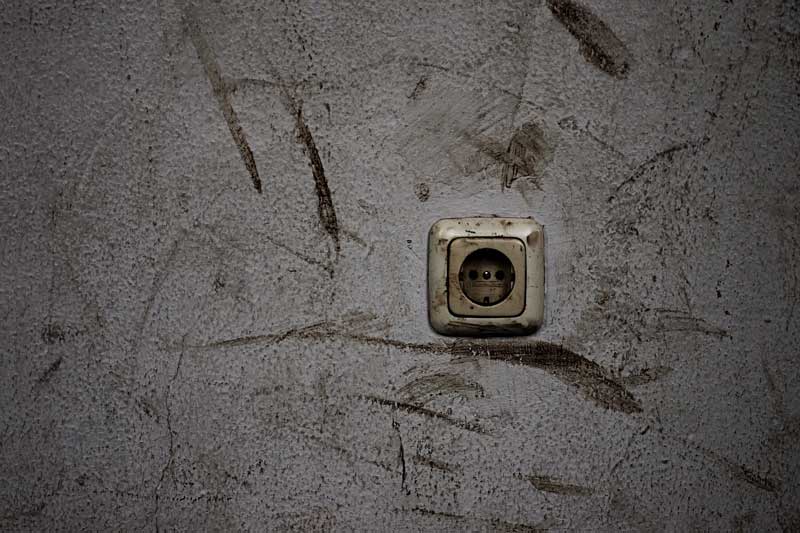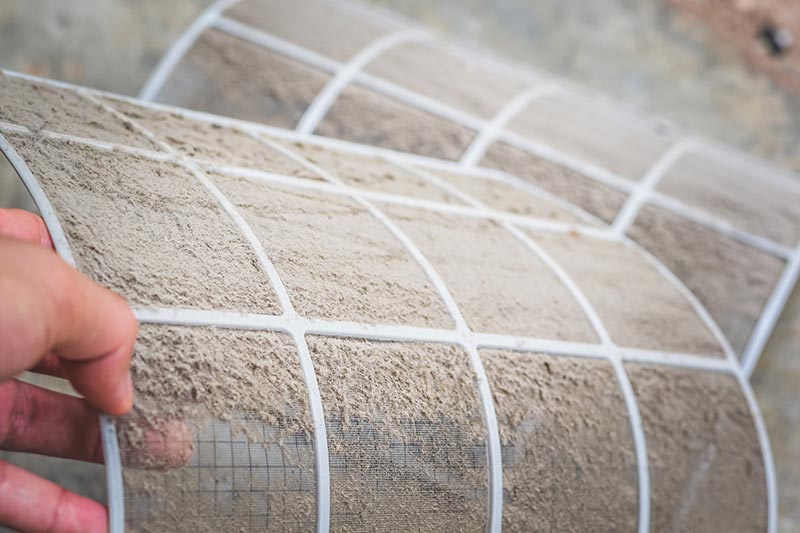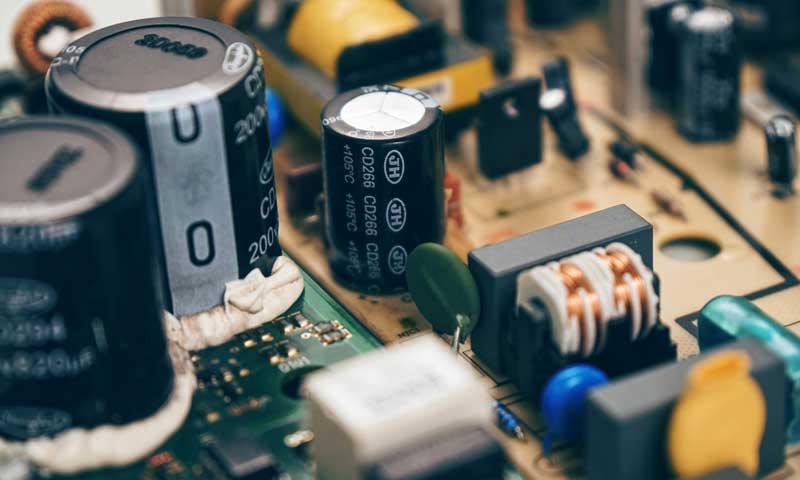Is your dehumidifier tripping your circuit breaker? You might want to take a look at your power sources. Here’s why.
What would be of our lives without dehumidifiers? I’ve lost count of how many times my trusty appliance has saved me thousands of dollars worth of mold-related repairs.
You’ll be hard-pressed to find someone who owns one of these units, and regrets having purchased it.
Be it due to their ease of use, their relatively low price, or the benefits they offer, it’s undeniable that bringing one into your home is an upgrade from any other moisture-removing solution you were previously using.
Now, before you close this page because you think I’m trying to sell you on a new model, wait. I’m just trying to help you.
If you’re here reading this, you already own a dehumidifier, and sadly, it’s tripping your breakers.
Why is this happening?
There are several reasons why you might be experiencing this problem. From a faulty power source to a dirty filter. You name it, it’s a potential culprit. In order to pinpoint the right one, and find the most effective solution, you need to know exactly what to look out for.
This is why I’ve prepared the list below, where you’ll find the most common causes of this occurrence, and the simplest steps you can take to address them. I’m confident that, if you follow them religiously, your dehumidifier will stop tripping your breakers immediately.
Are you ready? Let’s get busy!
Fixing a Malfunctioning Dehumidifier
I know you’re probably thinking that if your breakers are tripping, the only plausible explanation would be a faulty internal component. And while I’d normally agree with you, this is not the case.
In fact, the cause behind this situation is much more likely to be related to an external factor, than to an actual technical fault with the unit. It’s tempting to pry your appliance open and start looking for answers in there, but please, don’t do it yet.
We will get there, but only as a last resort. Failing to go about the troubleshooting process in a detailed and orderly manner, is a surefire way of wasting your precious time, and money, as well as risking doing further damage to your machine.
Patience always pays off, so bear with me. Here are the main possible factors that could be causing your dehumidifier to keep tripping your circuit breaker:
- A bad wall outlet
- A damaged power cord
- A dirty filter
- A faulty compressor
- Overheating
- A fried circuit board
#1 A Bad Wall Outlet

Your appliance’s power sources should always be the first thing you look at when your breakers start tripping.
More often than not, the problem lies not with a technical fault inside the unit, but rather with a malfunctioning outlet or a damaged power cord. It may sound simple, but here’s where it gets tricky.
It is very easy to mistake a faulty outlet for something else, as the signs of this malfunction are very similar to those of overheating, and a fried circuit board.
Moreover, depending on the severity of the damage to this power source, it could be supplying your appliance intermittently with electricity, which is extremely dangerous. As soon as you suspect this to be the issue, please stop using your machine until you test a different outlet.
Solution: Relocate your appliance for testing.
Carefully unplug your machine, and let it cool down. Once 10 minutes or so have passed, take it to a different section of your house, and plug it back into a different outlet, preferably as far removed as possible from the one you’ve been using.
Provided that you want to make sure that the faulty outlet is not a sign of a greater malfunction in your home’s electrical wiring, you can always use a multimeter to test it for continuity.
If you ask me, it’s always better to nip potential issues in the bud.
#2 A Damaged Power Cord
If you ever stripped a power cord, you know that, inside the thick rubber housing, there are several small cables that make it up.
And while they’re built to last, they’re not indestructible.
I’m not saying it’s an absolute certainty that your cable will eventually break, but, seemingly unimportant bad habits, such as storing it away improperly, keeping it tangled or pressed against a wall in a weird angle, are more than enough to do it in.
Just as it happens with your wall outlet, if the cord is only partially damaged, it could be supplying electricity to your appliance intermittently, so please, stop using it as soon as you believe this to be the cause of the tripped breakers.
Solution: If you have a spare cable for testing, do not hesitate to use it. Doing so will save you both time, and money, as well as provide you with an immediate answer.
Just make sure it meets the same amperage and voltage requirements as the damaged one.
Provided that you don’t have another one lying around, that’s perfectly fine too. You can easily find a replacement at any online marketplace by Googling your appliance’s make and model.
#3 A Dirty Filter

A lot of people ask me why an appliance that is water-based would need an air filter.
The answer is simple. Debris.
As you know, your dehumidifier works by sucking air inside it with the help of a fan to remove the excessive moisture in it, and then release a much drier current back into the room.
Your air filter is the only thing standing between the outside world and your appliance’s internal components. As time passes, it can become excessively dirty, and obstructed, thus compromising the airflow.
When this happens, your fan has to work extra hard to keep sucking in air, which often results in overheating, and other potentially dangerous consequences.
If your dehumidifier keeps tripping your circuit breaker, there’s a very good chance that this part requires urgent cleaning or replacing.
Solution: Carefully remove your unit’s front panel to expose the filter and remove it. Once you have done that, clean it with soap under running water, let it dry completely, and then delicately vacuum off any debris or obstruction.
Now, this will only work for filters under 6 months old. No matter how well you clean the part, if it’s older than that, it will never work normally again, and you’ll have to get a new one.
#4 A Faulty Compressor
If you own a dehumidifier with pumping capabilities, your unit has a compressor inside it.
In case you don’t know what this component does, let me briefly explain. Your compressor is what allows your pump to circulate water inside it in order to remove water from the reservoir.
When this part fails, your machine simply cannot function normally.
If your dehumidifier keeps tripping your circuit breaker, there’s a very good chance that your compressor is experiencing some issues, blocking the free flow of water, and causing overheating.
Solution: You will have to disassemble your appliance in order to gain comfortable access to your compressor.
Once you can freely work on it, you can test it for continuity, and try to determine whether it needs replacing. Provided that you’re a visual person like me, there are tons of online videos you can check out, and follow along step by step, to do so.
If you want to get any replacement part – or see how much one would cost – click to enter your model number in the search bar below. Our partners at AppliancePartsPros stock almost every part with free guides on how to install them.

#5 Overheating
I know I’ve said this a lot, but it can’t be stressed enough. Overheating is extremely dangerous, and detrimental to your dehumidifier, and any other appliance, for that matter.
This issue can manifest itself for a number of reasons. From an obstructed pump or compressor to dirty air filters. The possibilities are nearly endless.
And while this unfortunate condition will always be an unwanted possibility, there are a lot of things you can do to decrease the risk of it happening.
Solution: Give your appliance proper maintenance regularly and make sure to operate it consciously.
This will help you easily identify when your unit is having any kind of trouble with its internal components, and allow you to nip the inconvenience in the bud.
#6 A Fried Circuit Board

Assuming that none of the solutions above worked out for you, we have to start considering the possibility of a fried circuit board.
As you know, this part is your dehumidifier’s heart and soul. Without it, it cannot process any of your inputs or go about its processes normally. It’s essential, to say the least.
Your circuit board might have fried for a number of reasons, such as a faulty power source that was supplying electricity intermittently, or a large power surge stemming from a blackout.
Solution: Depending on the status of your warranty, you might want to start considering calling your manufacturer or getting a new model. If you’re still under coverage, they should be able to take care of the repairs for free.
Conclusion
To have your dehumidifier keep tripping your circuit breaker can be very inconvenient. Especially if you live in an area where a malfunction in this appliance could expose your furniture and walls to humidity-related damage.
Fortunately, as I hope you’ve learned in this piece, addressing most of the issues behind this is fairly simple.
More often than not, double-checking your power sources, and making sure your machine does not overheat, is enough to keep it running perfectly.
Thank you for reading. If you found this article helpful, why not keep the learning going through our other incredible resources below?







